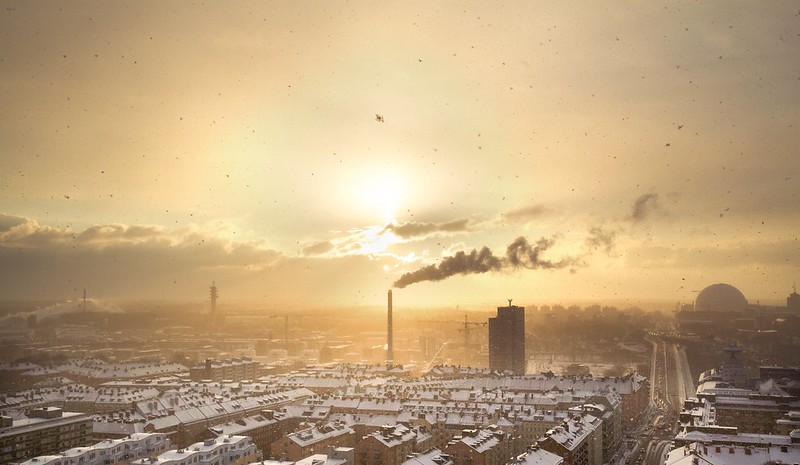Jupiter uses predictive cloud computing models to inform business owners how climate change will affect their operations in the future.
Climate change is already having have major humanitarian consequences around the world. And they’re set to become more extreme as temperatures increase. This is obviously a major concern for governments and institutions, but the ongoing effects of climate change are also being closely watched by another group: business leaders.
Silicon Valley startup Jupiter understands this relationship and has created a new service which provides business customers with accurate predictions about how climate change will affect them in as much as fifty years in the future.
The list of potential effects is a long one: Unseasonal and violent weather could disrupt supply chains and logistical routes, rising sea levels could damage coastal facilities or properties, while civil and social strife caused by the effects of climate change could lead to any number of major issues. For example, the most recent hurricanes to bombard the US – Harvey, Irma and Maria – reportedly caused over 200 billion USD of damage to homes and businesses.
The idea itself isn’t entirely new. Risk assessment companies have long been plugging climate change data into their models, while similar data-driven technology has also been used to predict animal migration routes, epidemics and even civil wars. Previous climate change predictions, however, often depended on public data which is relatively short-term, non-site specific and academic in nature. By merging public information with a host of additional data sources, Jupiter hopes they can provide longer-term assessments for specific sites.
How Jupiter Works
Jupiter utilizes a cloud-based computing tool which takes in data generated by millions of terrestrial and satellite-based sensors. This data is cross-referenced with local information about a specific area, such as its topography or state of infrastructure, to create a detailed prediction of how climate change will affect it.
Armed with this information, Jupiter generates two scores, a HeatScore and a FloodScore, which predict the effects of increasing global temperature and sea-levels respectively. Currently, Jupiter is only providing predictions for the US market, although it hopes to expand to Europe in 2018 and into Asia in 2019.
 ©
© This service will undoubtedly be of major benefit to business leaders looking to fortify their companies against the long-term effects of climate change, although it could also be helpful to humanity in general. Critics of environmental protection policy often cite its potentially negative effects on industry and business as justification for their stance. However, technology such as that developed by Jupiter could show that it is climate change itself, and not the regulations which are designed to reduce it, that is the larger threat to economic well-being in the long-run.
As climate change becomes more pronounced and business leaders become more aware of its implications for their balance sheets, they could perhaps muster enough political clout to help promote the introduction of meaningful and effective climate change policy across the globe.






